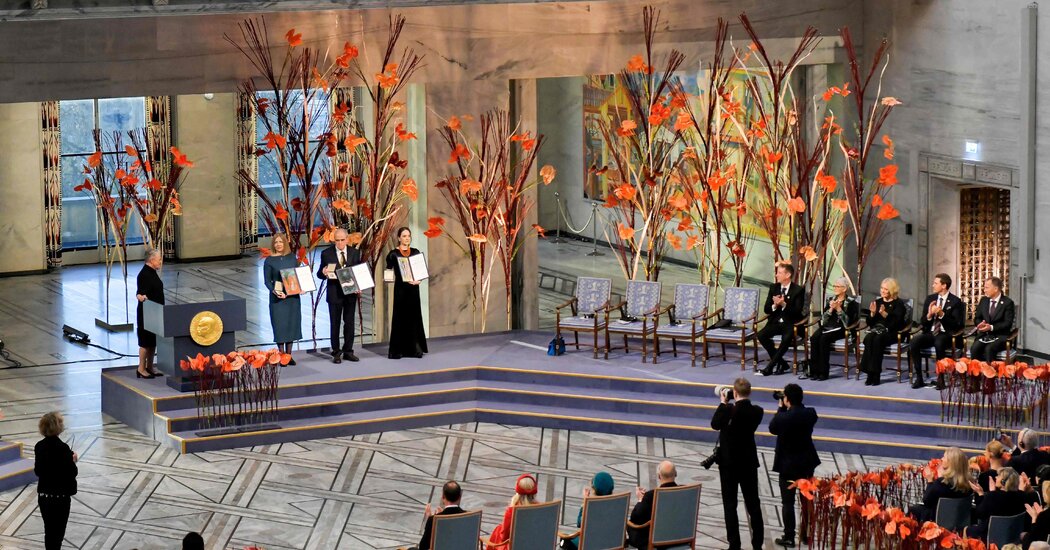Even the right-wing leader, Mr. Åkeeson, objected on Facebook and said he would not attend. “Respectable Swedish politicians with any democratic and moral compass at all do not celebrate with representatives from Russia, Belarus or Iran. Period,” he said.
The Nobel Foundation gives prizes each year in the fields of physics, chemistry, physiology or medicine, economics, literature and peace. Last year, although Russian and Belarusian diplomats were not invited to the ceremony, the Peace Prize was awarded to Memorial, a Russian human rights organization, and Ales Bialiatski, a Belarusian activist, along with the Center for Civil Liberties in Ukraine.
At the ceremony, Berit Reiss-Andersen, the chairwoman of the Norwegian Nobel Committee, which selects the Peace Prize recipients, said the choices last year were meant to signal that the war in Ukraine must end. “Sometimes an effort for peace lies with civil society and not with state ambitions alone,” she said.
Iranian representatives were disinvited last year after Tehran’s brutal crackdown on protests that broke out after a woman, Mahsa Amini, was arrested by Iran’s morality police on accusations of violating the country’s conservative dress code, and then died in custody. The demonstrations quickly broadened to target the ruling clerical establishment and societal grievances, including corruption, the ailing economy and social and political restrictions.
In the ensuing crackdown, security forces arrested thousands of protesters and killed hundreds, according to Iran Human Rights, a group based in Norway, and the United Nations. At least seven have been executed.
Although the demonstrations have largely quieted, the authorities continue to harass or detain people, including relatives of protesters who were killed, in an effort to silence them ahead of the anniversary of the protests this month.
Vivian Yee contributed reporting.

